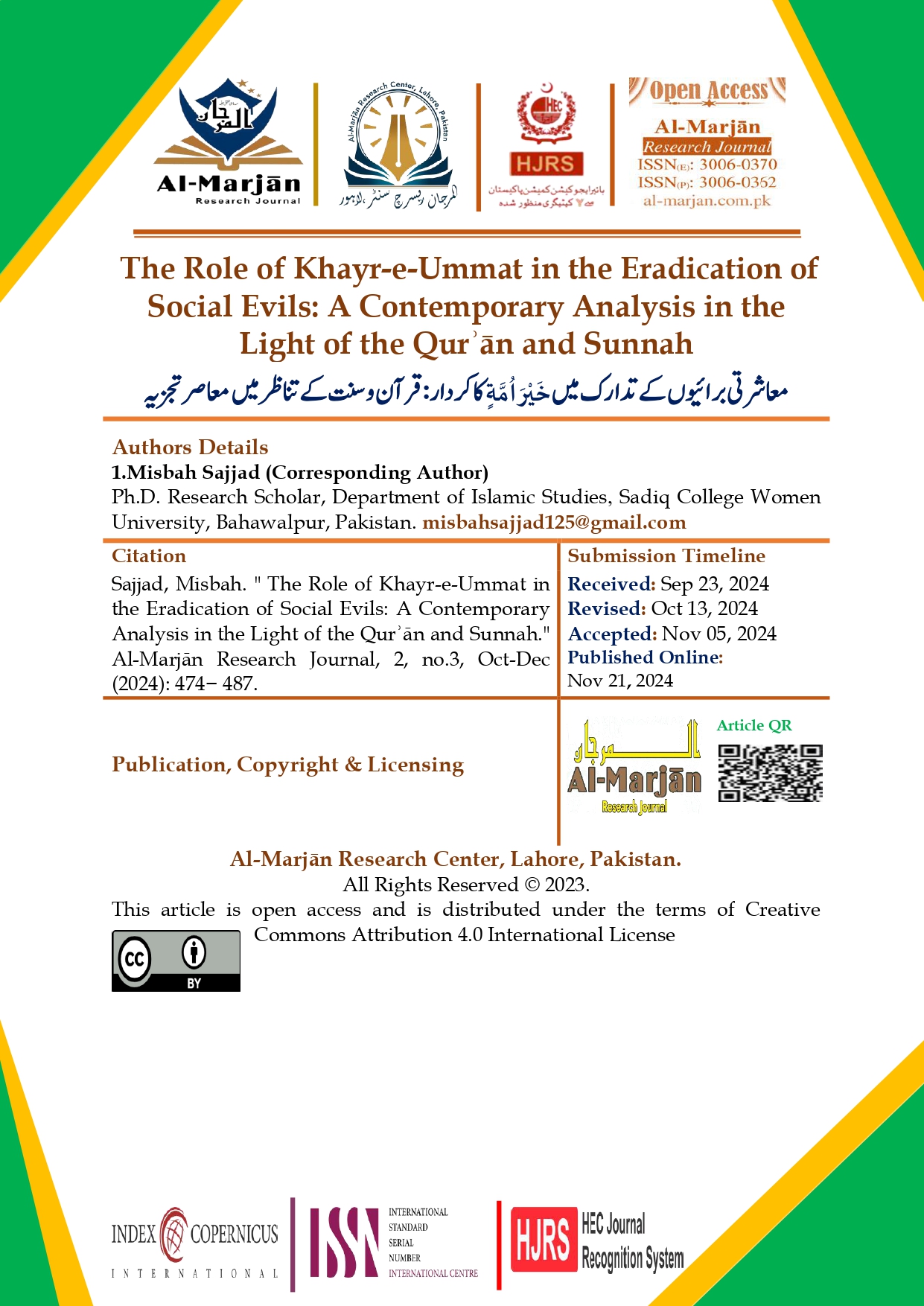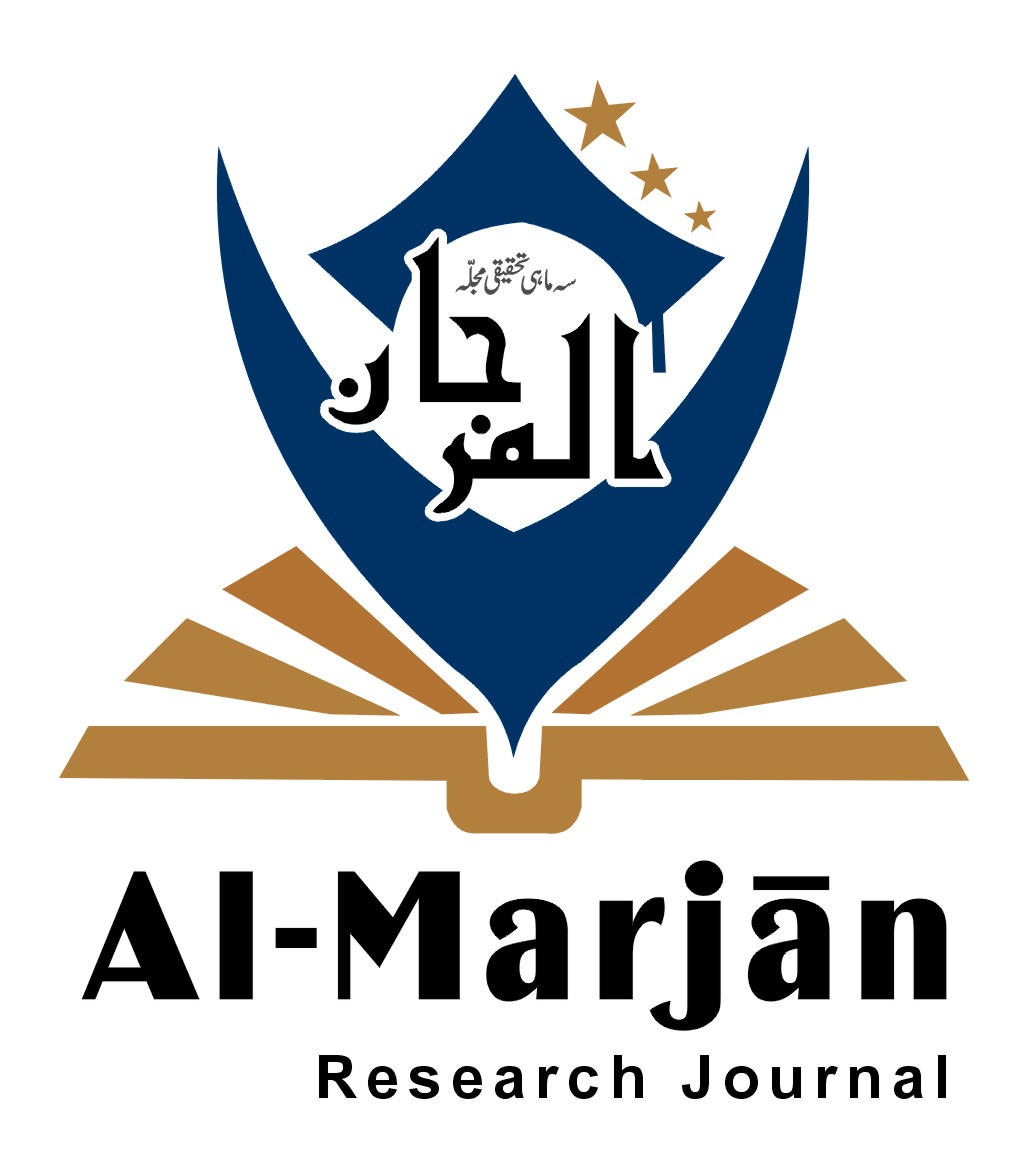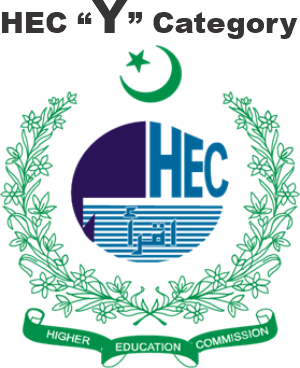The Role of Khayr-e-Ummat in the Eradication of Social Evils: A Contemporary Analysis in the Light of the Qurʾān and Sunnah
معاشرتی برائیوں کے تدارک میں خَیْرَ اُمَّةٍ کا کردار: قرآن و سنت کے تناظر میں معاصر تجزیہ
DOI:
https://doi.org/10.1234/pztbyw16Keywords:
Khayr-e-Ummat, social evils, Islamic reform, enjoining good, contemporary application.Abstract
This research paper examines the Quranic concept of Khayr-e-Ummat (the Best Nation), derived from the verse “You are the best nation raised for mankind” (Āl ʿImrān 3:110), and its contemporary application in addressing social evils within Muslim societies. The paper delves into the linguistic, exegetical, and theological dimensions of the term, highlighting the conditional nature of this honor—enjoining good and forbidding evil. It asserts that the status of Khayr-e-Ummat is not hereditary or ethnic but performance-based, rooted in moral integrity, collective responsibility, and active reform. The study identifies prevailing social issues such as dishonesty, injustice, obscenity, corruption, and moral decline that have eroded the ethical fabric of many Muslim communities. It argues that these issues stem from a deviation from the core Islamic principles emphasized in the Qurʾān and Sunnah. The paper also explores the Prophetic model (Sīrah) and the era of the Rightly Guided Caliphs as paradigms for moral governance and social reform. It proposes practical strategies involving educational reforms, media accountability, religious leadership empowerment, and youth engagement as tools for reviving the Ummah's role. The research concludes that reclaiming the position of Khayr-e-Ummat is essential for moral revival and sustainable development. It urges both individuals and institutions to commit to their divinely assigned mission of promoting good and preventing evil in contemporary contexts.






































